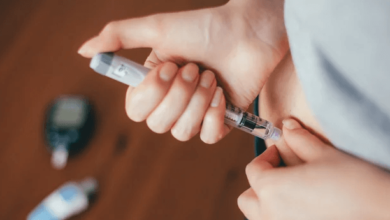Applications of Injectable Drug Delivery Solutions

Injectable drug delivery solutions have been a cornerstone in modern medicine, offering a reliable, fast, and efficient method for administering therapeutic agents. From life-saving vaccines to targeted cancer therapies, injectable solutions cover a wide range of medical applications. These delivery systems bypass first-pass metabolism, provide precise dosing, and offer rapid onset of action, making them indispensable in healthcare.
1. Injectable Biologics: Monoclonal Antibodies, Vaccines, and Peptides
A. Monoclonal Antibodies (mAbs)
Monoclonal antibodies are engineered proteins that target specific antigens in the body. Injectable mAbs have revolutionized treatments for cancer, autoimmune diseases, and infectious diseases.
- Applications:
- Cancer Immunotherapy (e.g., Rituximab, Trastuzumab)
- Autoimmune Diseases (e.g., Infliximab for Crohn’s Disease)
- Infectious Diseases (e.g., mAbs for COVID-19)
- Advantages:
- High specificity
- Long half-life
- Reduced off-target effects
B. Vaccines
Injectable vaccines stimulate the immune system to protect against diseases. From traditional inactivated vaccines to advanced mRNA-based formulations, injectables remain the most effective vaccination route.
- Applications:
- Infectious diseases (e.g., Influenza, COVID-19, Hepatitis B)
- Cancer vaccines (e.g., HPV vaccine)
- Recent Innovations:
- mRNA vaccines (e.g., Pfizer-BioNTech, Moderna COVID-19 vaccines)
- Nanoparticle-based vaccines for targeted delivery
C. Peptide and Protein Therapies
Many therapeutic peptides and proteins, due to their size and instability in the gastrointestinal tract, are administered via injectable routes.
- Applications:
- Diabetes treatment (e.g., Insulin, GLP-1 analogs)
- Hormone replacement therapy (e.g., Growth Hormone)
- Anticoagulants (e.g., Enoxaparin)
2. Gene and RNA-Based Therapeutics Delivered via Injectables
Injectable delivery systems have played a pivotal role in advancing gene therapy and RNA-based therapeutics, enabling the direct introduction of genetic material into the body.
- Applications:
- mRNA Vaccines: As seen with COVID-19 vaccines, mRNA-based injectables have demonstrated rapid scalability and effectiveness.
- Gene Therapy: Viral vector-based injectable solutions (e.g., Luxturna for retinal dystrophy) deliver corrective genes to target cells.
- RNA Interference (RNAi): siRNA therapies (e.g., Patisiran for hereditary amyloidosis) utilize injectable lipid nanoparticles for targeted gene silencing.
- Challenges:
- Stability of nucleic acids
- Immunogenicity
- Efficient delivery to target cells
3. Injectable Drug Solutions for Cancer Treatment: Chemotherapy and Immunotherapy
A. Chemotherapy
Injectable chemotherapeutic agents remain a mainstay in cancer treatment, providing systemic exposure to cytotoxic drugs.
- Common Injectable Chemotherapies:
- Doxorubicin
- Cisplatin
- Paclitaxel
- Advancements:
- Liposomal formulations (e.g., Doxil) improve drug targeting and reduce toxicity.
- Nanoparticle-based injectables enhance drug solubility and tumor targeting.
B. Immunotherapy
Injectable immunotherapies, particularly immune checkpoint inhibitors, have transformed oncology treatment paradigms.
- Examples:
- Nivolumab and Pembrolizumab (anti-PD-1 antibodies)
- Ipilimumab (anti-CTLA-4 antibody)
- Benefits:
- Activates the immune system to target cancer cells
- Improved survival rates in melanoma, lung cancer, and more
4. Pain Management Solutions: Local Anesthetics and Opioid Alternatives
Injectable solutions play a vital role in acute and chronic pain management.
A. Local Anesthetics
Used for surgical procedures and localized pain relief, injectable anesthetics block nerve conduction.
- Common Agents:
- Lidocaine
- Bupivacaine
- Advanced Formulations:
- Extended-release liposomal bupivacaine for prolonged pain control.
B. Opioid and Non-Opioid Analgesics
Injectable opioids are often used in hospitals for severe pain, though non-opioid alternatives are gaining traction due to addiction concerns.
- Examples:
- Morphine, Fentanyl (opioids)
- Ketorolac (non-opioid NSAID)
- Emerging Trends:
- Injectable biologics targeting pain pathways (e.g., CGRP inhibitors for migraines)
5. Injectable Hormone Therapies and Biopharmaceuticals
A. Hormone Replacement Therapy (HRT)
Injectable hormone therapies help manage hormone deficiencies and related conditions.
- Applications:
- Diabetes: Insulin injections remain a gold standard.
- Hypogonadism: Testosterone injections for male hormone replacement.
- Menopause: Estrogen injections for symptom management.
B. Fertility Treatments
Hormonal injectables (e.g., hCG, FSH) are critical components of assisted reproductive technologies like IVF.
C. Biopharmaceuticals
Biopharmaceuticals, such as interferons and erythropoietin, are often administered via injectables.
- Applications:
- Anemia management (e.g., Epoetin alfa)
- Multiple sclerosis treatment (e.g., Interferon-beta)
6. Injectable Solutions for Cardiovascular and Metabolic Diseases
Injectables play a significant role in the management of various cardiovascular and metabolic conditions.
- Anticoagulants: Heparin and low molecular weight heparins (e.g., Enoxaparin) for preventing blood clots.
- Thrombolytics: Tissue plasminogen activator (tPA) for dissolving blood clots in stroke or heart attack patients.
- Antihyperglycemics: GLP-1 receptor agonists (e.g., Liraglutide) for Type 2 diabetes and weight management.
- Lipid-Lowering Agents: PCSK9 inhibitors (e.g., Alirocumab) for managing high cholesterol.
7. Injectable Solutions in Emergency Medicine
Injectable solutions are critical in emergency and critical care settings due to their rapid onset of action.
- Epinephrine: Life-saving treatment for anaphylactic reactions (e.g., EpiPen auto-injectors).
- Naloxone: Used for opioid overdose reversal.
- Atropine: Employed in cases of bradycardia and certain poisonings.
- Intravenous Fluids: Saline, Ringer’s lactate, and glucose solutions for rehydration and electrolyte balance.
Read Also: Unlocking Dance’s Health Benefits for Mind and Body
8. Future Perspectives in Injectable Drug Delivery Solutions
The future of injectable drug delivery focuses on improved patient compliance, targeted therapies, and minimizing side effects. Key areas of innovation include:
- Long-Acting Injectable (LAI) Formulations: Reducing dosing frequency for chronic conditions (e.g., schizophrenia treatments like Risperdal Consta).
- Smart Injectable Devices: Wearable injectors with real-time monitoring for personalized dosing.
- Needle-Free Injectables: Technologies like jet injectors that eliminate the need for needles.
- Injectable Nanomedicine: Precision targeting using nanoparticles to deliver drugs directly to diseased tissues.
- Gene and Cell Therapy: Injectable delivery of CAR-T cells and stem cells for regenerative medicine.
9. Conclusion
Injectable drug delivery solutions remain one of the most versatile and effective methods of administering therapeutic agents. From life-saving vaccines and gene therapies to targeted cancer treatments and pain management solutions, injectable drugs address a vast range of medical needs. With continuous innovations in nanotechnology, biologics, and delivery devices, injectable therapies are set to play an even more prominent role in the future of personalized medicine.
The focus on patient-friendly delivery methods, controlled release formulations, and targeted therapies will further expand the scope and impact of injectable drug delivery solutions in the coming years.






